|
This is the title of Peta Bee's piece in Times2 this Monday, 7th September. It describes how she had made the common mistake of delaying seeking advice for a lump she dismissed as a 'cyst' then breast pain that she attributed to irritation from her guitar strap. When the pain became overwhelming she sought help but by then it was too late.
Reading her story, I felt not only sorrow at the loss of a young life full of promise, but also survivor guilt. In 1993, I, a medic (!), had dismissed the lump in my right breast as 'just another cyst' until a year later I faced up to the fact that it was getting bigger. It was breast cancer. I was 56 then (1993) with adult children. I had a mastectomy and the underarm lymph glands were clear. In 2016, a tiny lump, a cancer in the mastectomy scar, was treated promptly by biopsy and 3 weeks' radiotherapy to the scar area. So here I am in 2021, 28 years on with my 83rd birthday in a fortnight, a living tribute to my good luck and others' good management of my breast cancer, and living proof that, although cancer can't be cured (there are a few exceptions), it can be managed for many years,
0 Comments
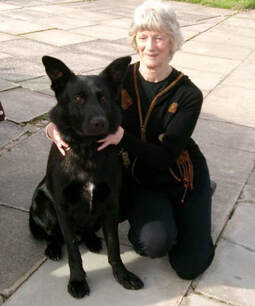 Villain with the author Villain with the author My friend bought several copies of One Dog and His Cop to use as presents, topping up the sales proceeds to Dogs Trust with her own donation. She recently received a lovely thank you letter from them for her 'generous donation during this difficult and unprecedented time'. It came just before diagnostic dogs were shown to have a better pick-up rate than Covid tests even in symptom free cases. You can find the answer to the FAQ 'How do dogs do it?' in One Dog and His Cop. Villain has eyes only for his cop hoping he'll be called out on a job instead of being polite to the visitors. Now on Amazon: for only £1.99 you can read this true story of how Villain, a cuddly German Shepherd puppy, grew into an award-winning police dog and find the answer to the frequently asked question about working dogs: 'How do they do it?'. This well-researched account of Villain's brave and dedicated service in the Devon and Cornwall Police Dog Unit is a great tribute to an outstanding, and often very funny, member of the force. Left: front cover Right: Villain off duty, one of a group of interior images
You can find other details of Poems of the Poppies in BOOKS, and my poem Brief Encounter in POEMS. You will need to take my word for it that I am the person on the end of the front row three places from Dame Vera in the centre. It was World War 2 veteran, 90-odd-year-old Len Johnson, then Chairman of the Macclesfield branch of the Legion who suggested that I should ask Dame Vera to write the foreword, insisting when I demurred: "I know she'll do it." And she did, most beautifully.
When I published In Our Fathers' Footsteps on 11th November 2018 to mark the centenary of the Armistice and raise funds for the Legion, I sent Dame Vera a copy by way of thanks and received this warm letter of thanks from her which I shall always treasure. If you are wondering what the connection is between the famous Lakes poet, two images of a harbour and the poem below, continue reading. It would be many years after we studied Wordsworth for O-level Eng Lit that I found that the famous poet used to wander around this harbour as a boy where his father was Collector of Customs, Legal Agent for Sir James Lowther, First Earl of Lonsdale, and Recorder for Cockermouth where the family lived. Sir James had already had several pits sunk in the area before the poet was born, much of the coal being exported to Ireland, Whitehaven being a major port by the time the poet was born. In the poet's day the harbour would have been mainly black, how I remember it from my childhood, while the hill behind stayed green, without both its later buildings and the landmark on the horizon, still known to the locals as the Candlestick Chimney, the boiler house chimney for the Wellington Pit. Its shaft was sunk in 1838, the pit closing in 1932 but it is mainly remembered for being the site of Cumbria's worst mine disaster in May 1910 when 136 men and boys were killed. When I decided to have a go at writing a poem for a competition commemorating this anniversary of the poet's birth, I was drawn to the parallels between his and my life events and the consolations that shaped our characters: as he put it, 'The child is father of the man' thus pre-empting Freud by some considerable time. Comparable life events, though not of comparable magnitude: okay, between the ages of three and seven I hardly saw my father but he got back whereas the poet's mother died when he was seven, his father when he was thirteen, and three of his children predeceased him. As for my attempt at iambic pentameter, well...never again. How did Shakespeare manage such flowing lines in such quantity? The poem got nowhere but I'm glad I tried. Images © Paul Martin 2007 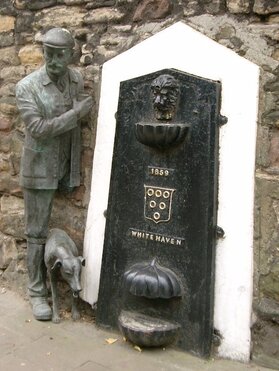 Amputee miner by memorial fountain. Amputee miner by memorial fountain. FOR THE LEAST OF THESE Remember the six motherless children whose father died in a pit disaster. Thank the family next door who took them into their tiny home and gave them a roof, food and love. Remember the pit boy who fell down the mine shaft doing a man’s job. Thank the man who unearthed the truth that his Mam and Dad did not live to see. Remember the thousands of miners made redundant when all the country's pits closed. Remember their sons who leave school now with no job and no future. Thank the old woman who cooks dinner every Friday for the homeless. The drinking water fountain commemorates the installation in 1859 of piped water for the town from Ennerdale Lake, about twelve miles away. Haig Pit, the last working coal mine in Whitehaven, Cumbria, closed in 1986. There are plans to open a deep mine for coking coal under the Irish Sea a few hundred yards south at Woodhouse.
Images © 2007 Paul Martin. The poem's title is taken from Matthew 25, vv 40-45. The Spirit of Christmas Nothing in nature lives for itself rivers don’t drink their own water trees don’t eat their own fruit the sun doesn’t shine for itself a flower’s fragrance is not for itself. Living for each other is the rule of nature Source: I first saw this in Israelmore Ayivor's Leaders' Watchwords, a quotation from a 2017 speech by Pope Francis.
I am proud to have included in One Dog and His Cop the part played by Bonnie of Macclesfield who with other brave police dogs was responsible for helping our MP, David Rutley, then Animal Welfare Minister, at last get justice, in the form of 'Finn's Law', for police dogs like severely injured PD Finn killed or injured while saving us from harm. My huge thanks go to David Rutley for his press release and to Alex Scapens for telling the story in the Macclesfield Express this week (see below). Footnote: you can order not only through Amazon but also direct from the publishers, SilverWood Books, Waterstones and the Book Depository, and there may still be copies available locally at the Macclesfield Visitor Information Centre for anyone who would like one for a Christmas gift.
Here is the book blurb: Thanks to researching Jet's second major award (see previous blog), I was amazed to discover there is also a tenuous - but powerful - 1947 link between Jet and my Cumbrian mining origins. The citation "Saving a rescue party from a fall of rock while searching for survivors at the William Pit coal mine disaster, Whitehaven, Cumbria" William Pit Disaster, Whitehaven, Cumbria, 15 August 1947 I come from a Whitehaven mining family on my father's side and spent most of my childhood there. My cousin died in a pit shaft fall in 1953 and my uncle, a Battle of the Somme veteran, was one of 12 who died in the 1941 William Pit disaster. 104 men died in the 1947 disaster, including fathers and uncles of our schoolmates, over 200 children being left fatherless. It was a notoriously gassy pit. Whether or not my uncle who worked there in 1947, although not on that shift, was in any of the rescue parties, I don't know. They didn't go on about it. You can read my poem, 'Warnings', about the disaster in POEMS. It was first published by SilverWood Books in my first book, Mining Memories, in POEMS. I discovered an enlightening commemorative article in The Whitehaven News about Jet - not through us being up there on a family visit at the time, but from references to his RSPCA award on the web. Although you may prefer to read the whole piece (see Sources below), here is an outline, which includes the newspaper's full account of Jet's timely warning: On the weekend of the disaster, four RAF dog trainers and their dogs, Prince, Rex and Jet rushed to the disaster scene to see whether dogs could help in the search for victims. Nineteen-year-old Liverpudlian Bruce Marshall, of RAF Staverton, where Jet had been trained, had brought him out of retirement because of his known skills and fortitude during difficult search and rescue work during WW2. “The memories of that harrowing time and of the brave dog at his side never [left] him." On Monday we ‘went down below and boarded the tubs with the dogs and chugged down about a mile – to a scene of devastation. The explosion had occurred on the Friday…I recall men were digging and shovelling, going in with canaries and Davy lamps…We carried on all week…but were not able to find anyone alive…The work was recovery, not rescue. The dogs recovered several men, under rubble…” “Although it was too late to save any miners’ lives, Jet did save the rescue party. During a search he stopped, looked up and pricked his ears and moved back. It was a signal to get out of the area. Bruce called to the search party to stop and move back; they did so just before a wall of rock collapsed. The search party of 10-12 men had been saved by Jet's warning of the impending collapse of the mine roof and the handler’s quick response.” Jet hardly moved from his bed for two days. Mine gases, like 'afterdamp', in that notoriously gassy pit were thought to have affected his health. Poisoning by one of its constituents, carbon monoxide, was a contributor to my uncle's death in the 1941 explosion (see above). Jet was never quite well again and when he died in October 1949, Bruce sent a card to his owner. Jet was buried with honours close to his memorial in Liverpool's Calderstones Park where Paul’s cousin paid her respects on one of her visits to her home town. Sources:
Walsh, Emma (2016). Scrubbed up well: Hero dog Jet gets a spring clean. [Online]. Available at: https://calderstonesmansion.wordpress.com/tag/rspca-medallion-of-valour/ [Accessed 12 December 2020]. The Whitehaven News (2017). Serviceman and his dog searched for trapped William Pit miners. The Whitehaven News, 14 August [Online]. Available at: https://www.whitehavennews.co.uk/news/17112481.serviceman-and-his-dog-searched-for-trapped-william-pit-miners/ [Accessed 13 December 2020]. Imperial War Museum (2020). Souvenirs and ephemera.[Online]. Available at: https://www.iwm.org.uk/collections/item/object/30084468 [Accessed 13 December 2020]. Iola (2013). Jet of Iada [Online]. https://www.findagrave.com/memorial/103543531/jet-of-iada#source [Accessed 14 December 2020] Images: © IWM EPH 4540; © Paul Martin We've just received news, enclosed with our Christmas card from my husband Paul's cousin, of a famous black Liverpudlian German Shepherd dog, Jet, hero of the World War II London Blitz. 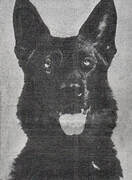 Jet of Iada Jet of Iada Although this is a grainy old family photo added by Iada, you can see the alert, eager-to-get- going look like the photographs of Villain in One Dog and His Cop. The family link is somewhat tenuous, though. The Christmas card is from Paul's cousin on his father's side. As a child in Liverpool, she would visit her aunt on her mother's side who was housekeeper to Mrs Cleaver, a well-known breeder of German Shepherd dogs, so she got to know the dogs very well. After training, Jet was sent to London where she located many casualties buried in the rubble left by the Blitz for which she was awarded the PDSA's Dickin Medal for gallantry on 12th January 1945. The citation “For being responsible for the rescue of persons trapped under blitzed buildings while serving with the Civil Defence Services of London.” Sources: 1.https://www.pdsa.org.uk/what-we-do/animal-awards-programme/pdsa-dickin-medal; 2.https://www.findagrave.com/memorial/103543531/jet-of-iada#source To follow: the story of how Jet was called out of retirement in 1947 to help in a major disaster
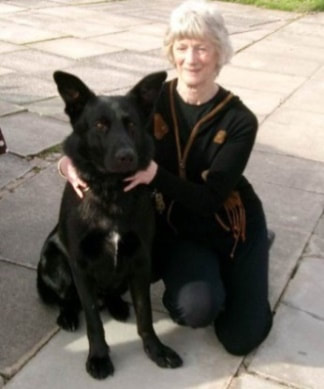 Police Dog Villain off duty with the author Police Dog Villain off duty with the author My husband took this photo of us on the occasion of three-year-old Villain's human grandparents' Golden Wedding. He had established a reputation by then as a superb tracker dog. Although he conducted himself with complete decorum, I could tell by his body language that he found my attentions boring and would rather have been out on another job - as his intent focus on Graham, his handler, confirms. For more information on the family background and the book, One Dog and His Cop, follow this link: www.whitehavennews.co.uk/news/18909185.whitehaven-raised-authors-book-best---cuddliest---police-dog-villain/  This story of Police Dog Villain and his handler, Graham, of the Devon and Cornwall Police Force was published by SilverWood Books of Bristol this week - after as many years in the writing as months in the publishing. Current availability: from the publishers, SilverWood Books of Bristol (RRP £8.99), Amazon, and other outlets via Central Books. The inspiration for the poem, 'Warnings', below, was the 60th anniversary of an explosion in William Pit, Whitehaven, Cumbria at 2pm on Friday, 15th August 1947. It left 104 miners dead and over two hundred children fatherless. 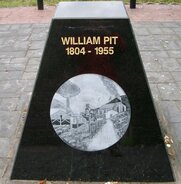 WARNINGS We beg him to come to the beach, get some sun: thunder's forecast tonight. But he says he's got to work if we want to eat. The dog tries to stop him but his mind is made up. She goes to his shoes, sniffs them all over, sits by them and whines. When we coax her to come she lies down and snarls her head on his shoes. We leave her behind, catch the bus to St Bees, meet our neighbour Her man's on nights and he's at their allotment so she's brought the kids. They can't understand why our dog wouldn't come. 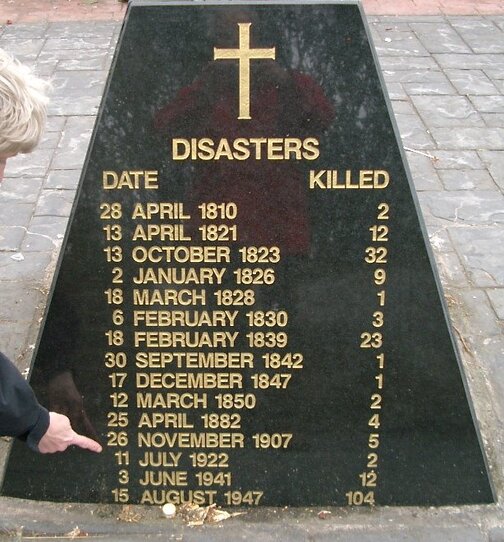 When the kids dig a tunnel that the sea undermines their cries of dismay shroud a steam-horn's refrain: one long then six short notes in a sad minor key. 'You can't hear t'pit-horn this far away,' she says. 'Pit's gone up, I know it,' I say, 'we'll ev te gaa back.' 'But we've only just come!' the kids wail. 'Gaa yam, lass,' she tells me, 'They can stay here wid us.' As I get on the bus I see policemen arrive. They'll head for the beach where no-one can hear the pit-horn's lament, and call everyone back to the pit that's gone up. *
Back in 1947, everyone had gone on the bus to St Bees because nobody had cars or even landlines then, so the police were sent to call them all back. Among the anecdotes reported afterwards was an account of a dog that tried without success to bar its owner's departure for that ill fated shift. As many animals can, it may have sensed unusual subterranean tremors beforehand. William Pit was notoriously 'gassy', my uncle being killed in the June 1941 'minor' disaster (10+ miners' deaths in one incident qualifies as a disaster). We made my faltering recording of 'Warnings' on Paul's Smartphone (by about Take 15) for Cheshire East Libraries' celebration of National Poetry Day. Link: www.facebook.com/BollingtonLibrary. It is one of 16 poems in my first, arguably most successful, book, Mining Memories (NB: Kindle version available at 99p). It is thanks to author and leader of Bollington Library Writing Group, Nik Perring's determined suggestion that I try my hand at poetry despite been no good at poetry at school, and ending up specialising in a scientific branch of medicine, chemical pathology. Images of the William Pit Memorial, Whitehaven, Cumbria ©Paul Martin 2007 John Austin, a proud member of the Royal British Legion, wrote this tribute during last year's centenary of the Armistice that ended the First World War. Tragically it did not prove to be 'the war to end all wars' as the updated version of his poem, the generosity of the public and the ongoing hard work of Legion members all show.
John Austin, the son of a forces veteran, struggled with severe dyslexia and other difficulties to become a gardener at the David Lewis Centre for Epilepsy, and during the Poppy Appeal John always seems to be the one returning to the Legion office to pick up yet another container because his last one was jam packed. He is a heartening example of the Legion's motto of 'Service not self'. I am proud, on behalf of everyone at the Legion and those whom we serve, especially at this time of year, to have this opportunity to publish John's poem. |
AuthorIt's almost two years since I published In Our Fathers' Footsteps (see under BOOKS). My latest book, One Dog and His Cop, about my cousin's police dog,was published 30 November this year (see under BOOKS). Archives
September 2021
Categories |
All rights reserved. © Jenny Martin 2018

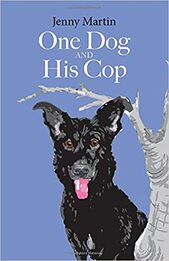
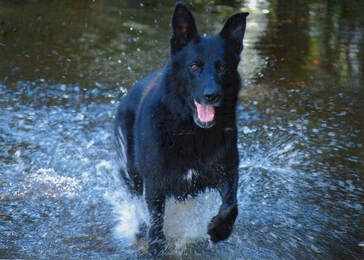

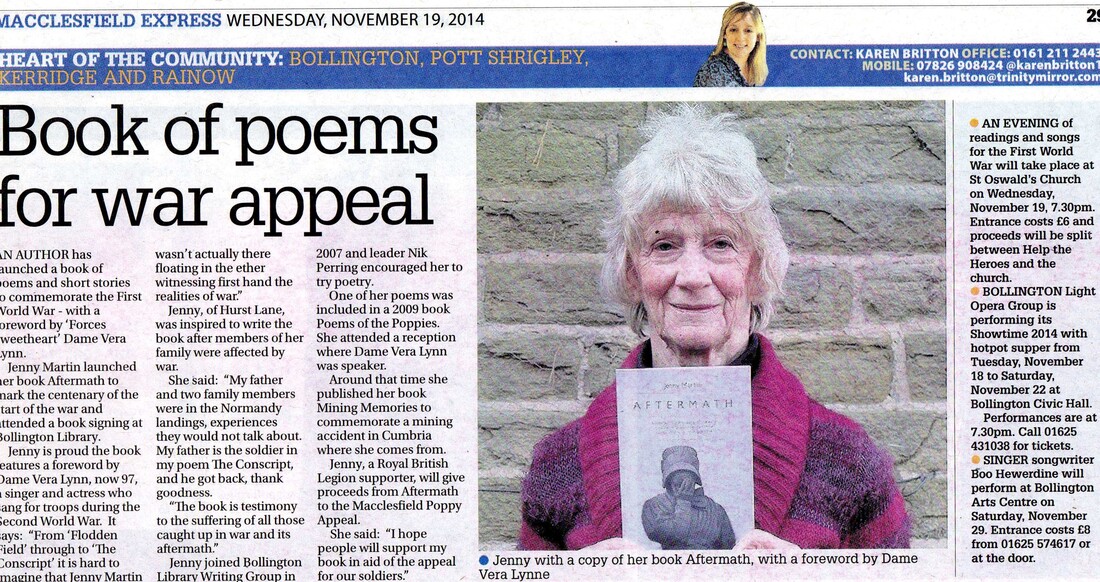
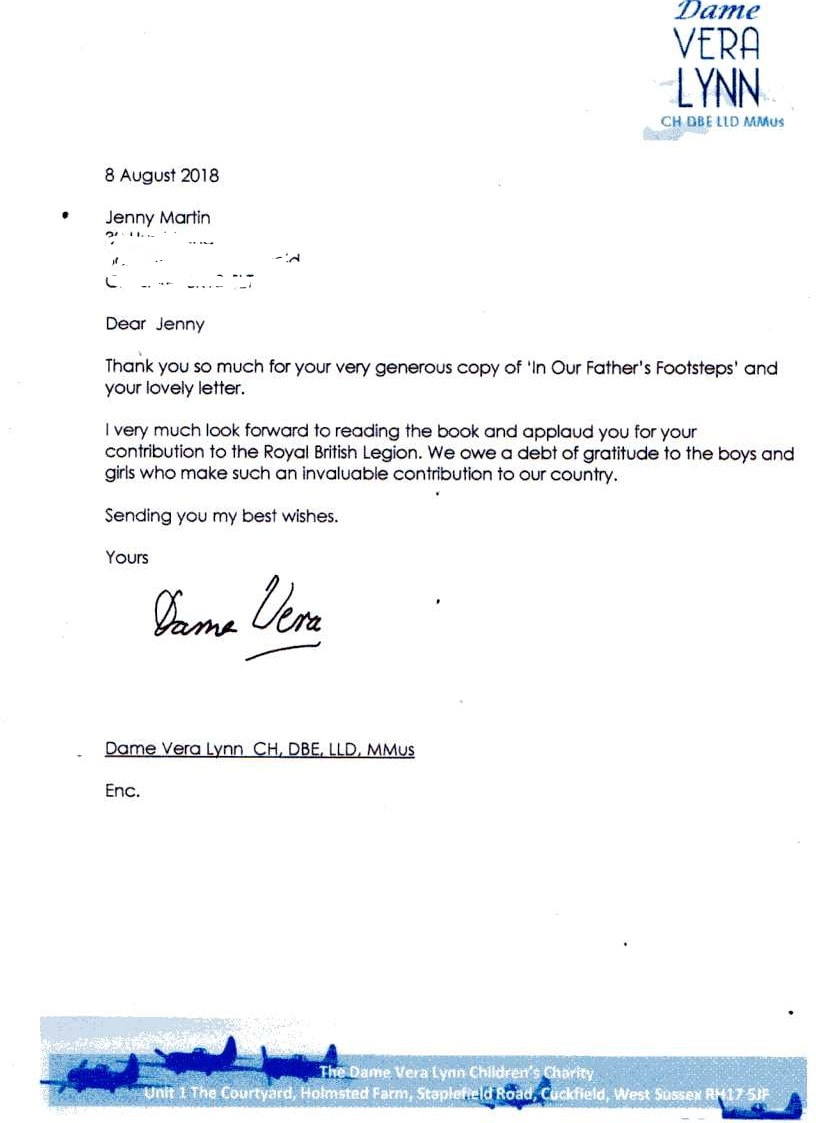
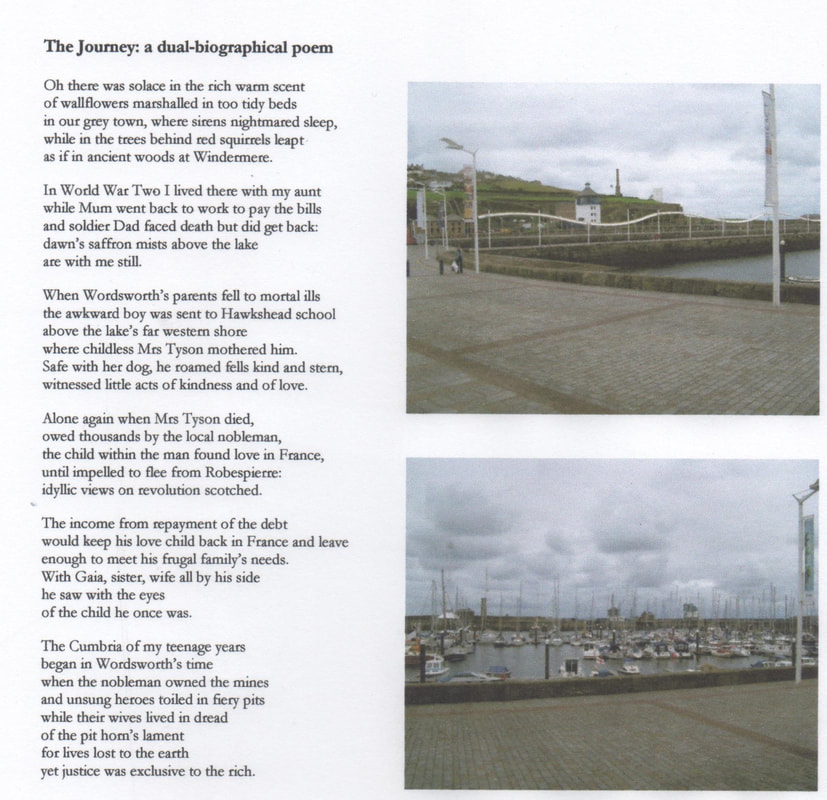
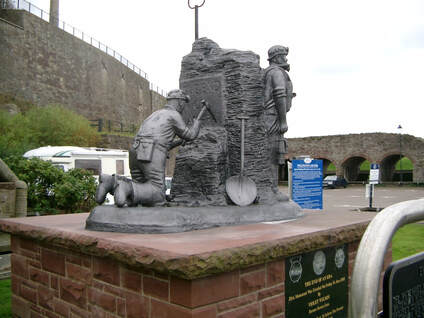
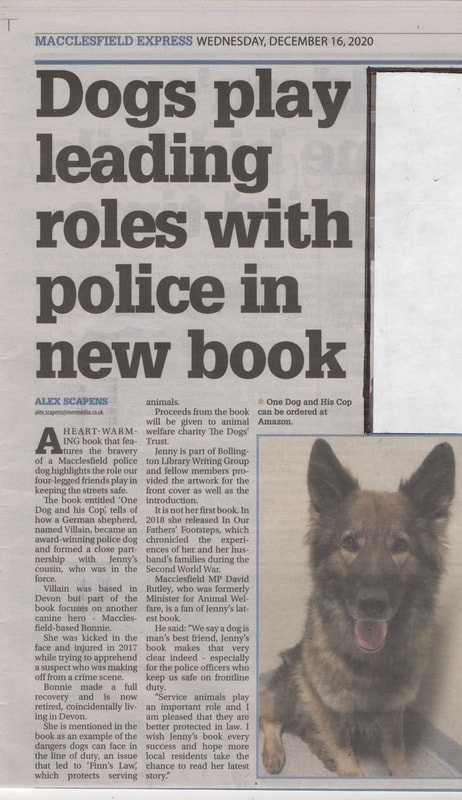
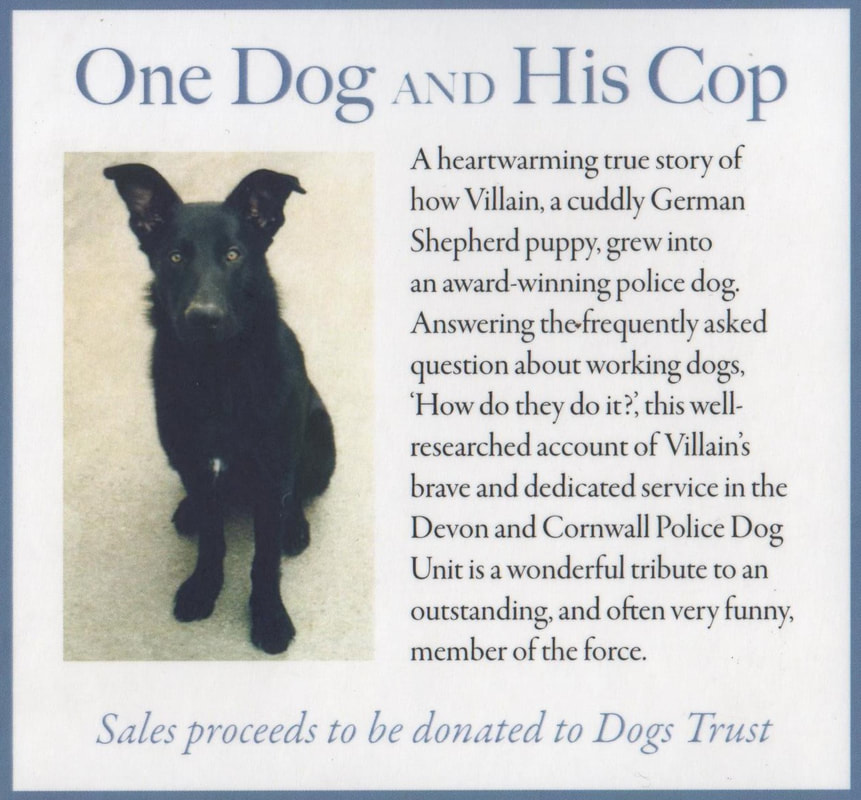
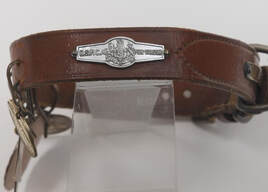
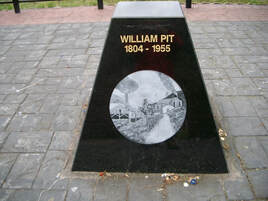
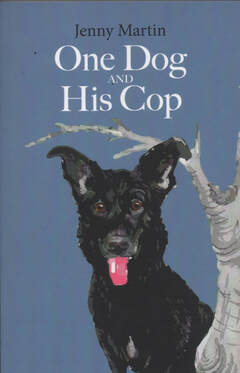
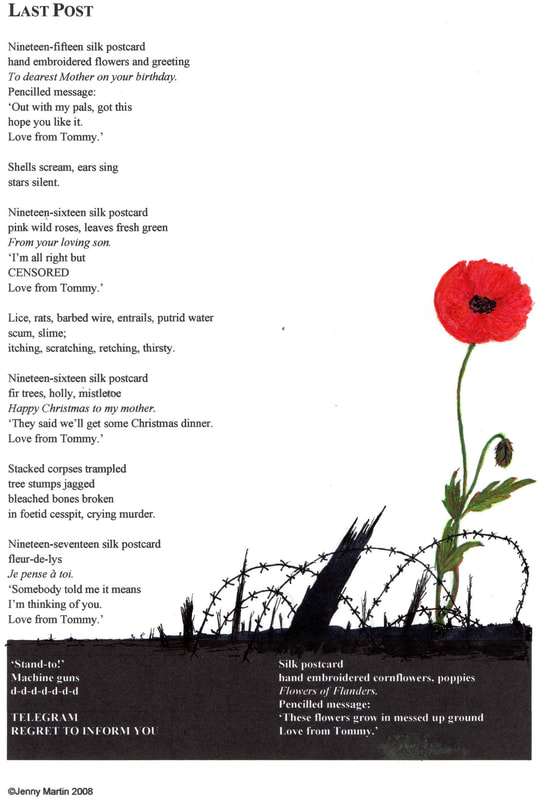

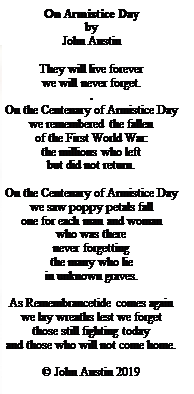

 RSS Feed
RSS Feed